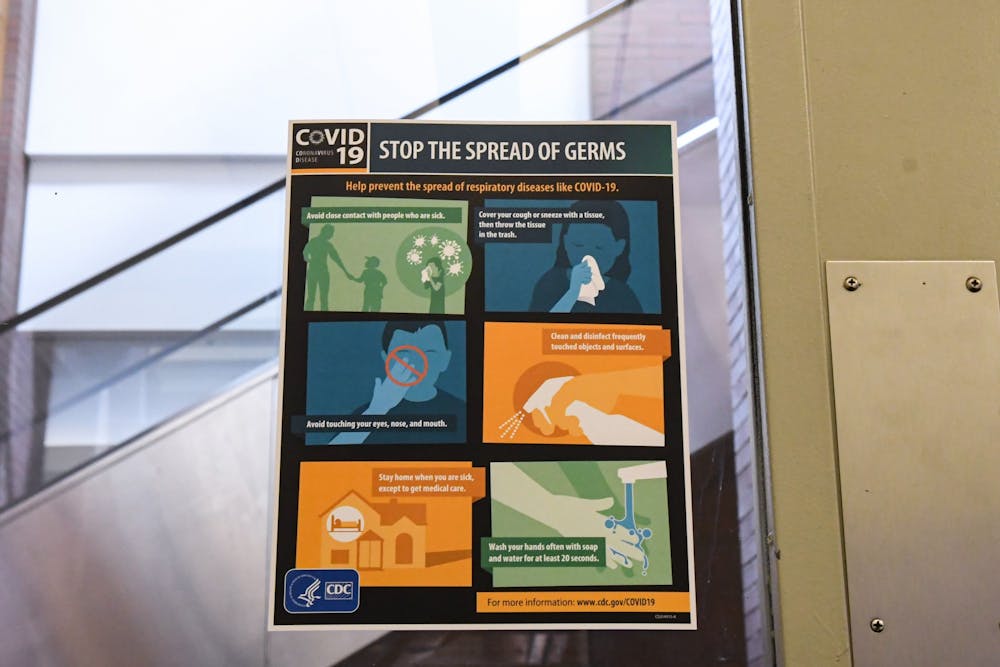
Posters detailing precautionary measures to combat COVID-19 have been placed around campus, in places such as Hunstman Hall.
Credit: Sukhmani KaurStudent Health Service emailed over 100 Penn students, faculty, and staff on Thursday afternoon alerting them that they may have been exposed to an individual with coronavirus.
In an interview with The Daily Pennsylvanian, Penn's Director of Campus Health Ashlee Halbritter said out of the over 100 cases of potential exposure Penn identified, none of the cases were high risk.
"On our campus we only had low-risk level and medium-risk level," Halbritter said. "There were no high-risk levels on our campus — everything that got sent out today was out of an abundance of caution and to make sure that we are being open and honest and transparent with people."
Out of the over 100 cases, Halbritter said more than three-quarters were low-risk cases and the rest were medium-risk cases. A high-risk case is when someone who was exposed to another person with coronavirus reveals symptoms of coronavirus, Halbritter said.
Medium-risk cases include instances where someone could have shared a meal with an individual with coronavirus or where someone studied with an individual with coronavirus in close quarters, Halbritter said. Low-risk cases could include individuals spending time in the same room with someone who has coronavirus for around 10 minutes, but never within six feet of the individual.
Halbritter declined to provide any specifics on the positive coronavirus diagnosis, and also declined to say whether it was an individual or more than one person with the disease.
The DP obtained copies of emails that Penn students received which said that although the students may have been in contact with a person with coronavirus, they are considered low-risk cases and there is currently no need to be tested or to quarantine.
"We recently learned that you may have been in contact with a person diagnosed with coronavirus disease 2019 (COVID-19), a novel coronavirus," the email read.
The email recommended that because "there is a chance you were exposed to COVID-19," students affected should monitor their symptoms for the next two weeks, call SHS, stay home if they feel unwell, and attempt to use good hand hygiene to limit the spread of germs and illnesses.
"In consultation with the local public health agencies, you are considered a very low risk exposure," the email read. "You do not need to isolate, quarantine, or be tested at this time."
Halbritter said the emails that were sent out were standard practice for a communicable disease situation.
"[The emails] are a very common public health form that is used to try to alert people that they may have been exposed to a condition, and to give them action items to let them know what you can do to continue to protect yourself," Halbritter said.
The Daily Pennsylvanian is an independent, student-run newspaper. Please consider making a donation to support the coverage that shapes the University. Your generosity ensures a future of strong journalism at Penn.
Donate







